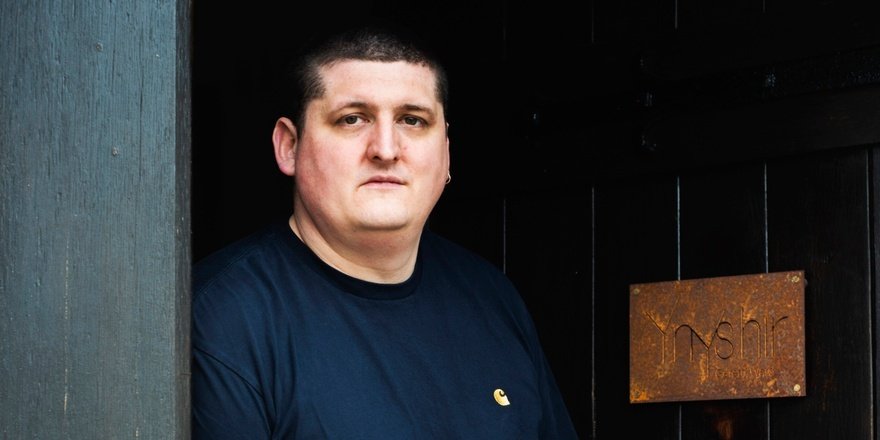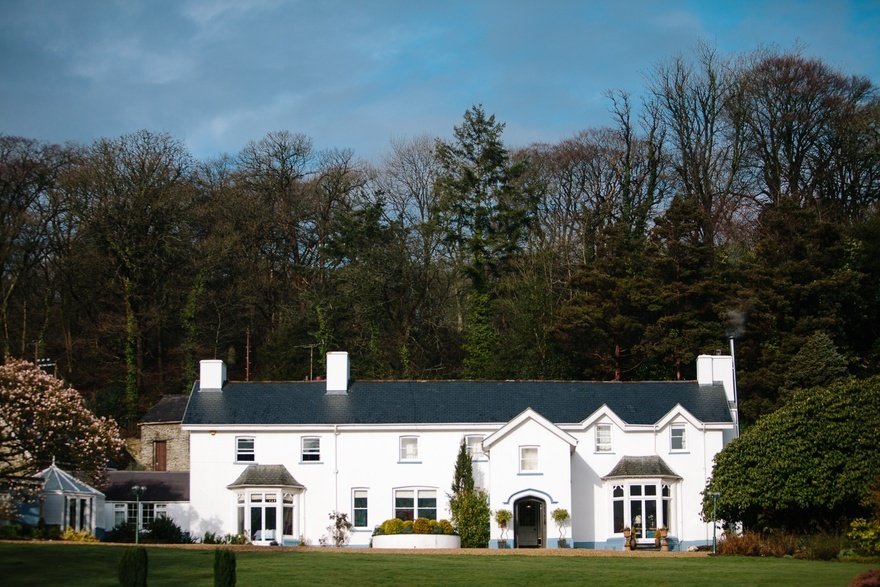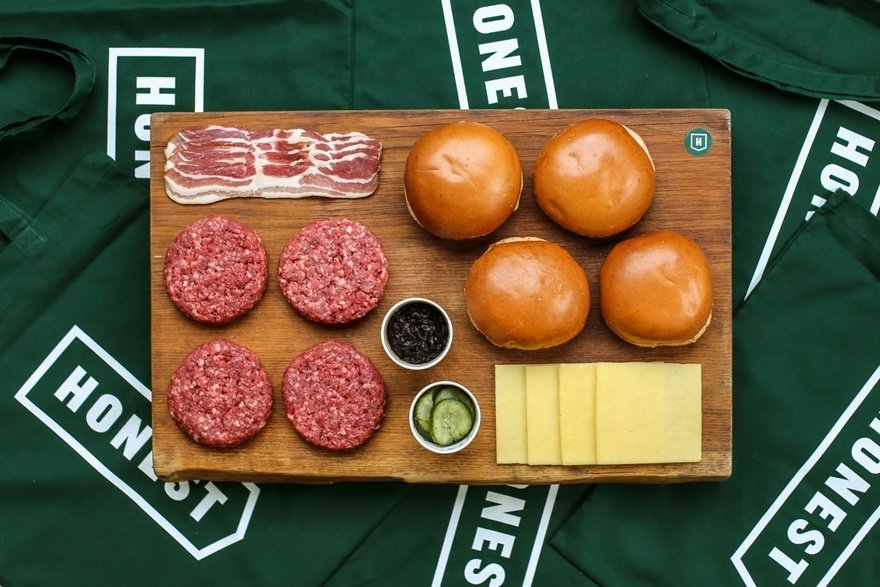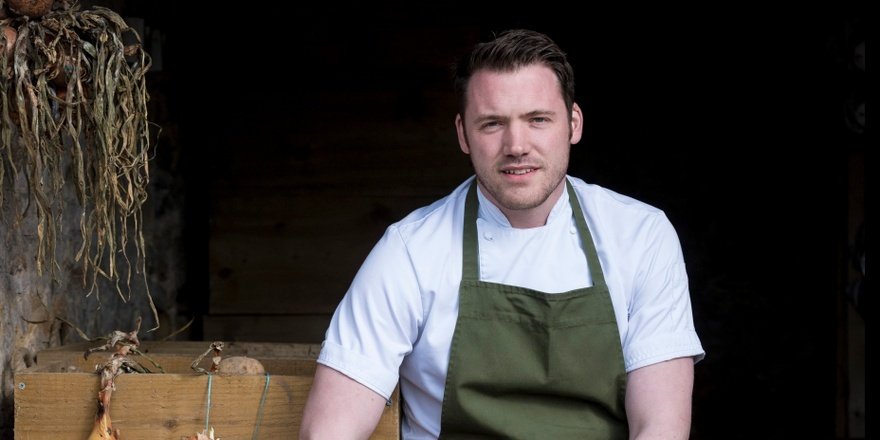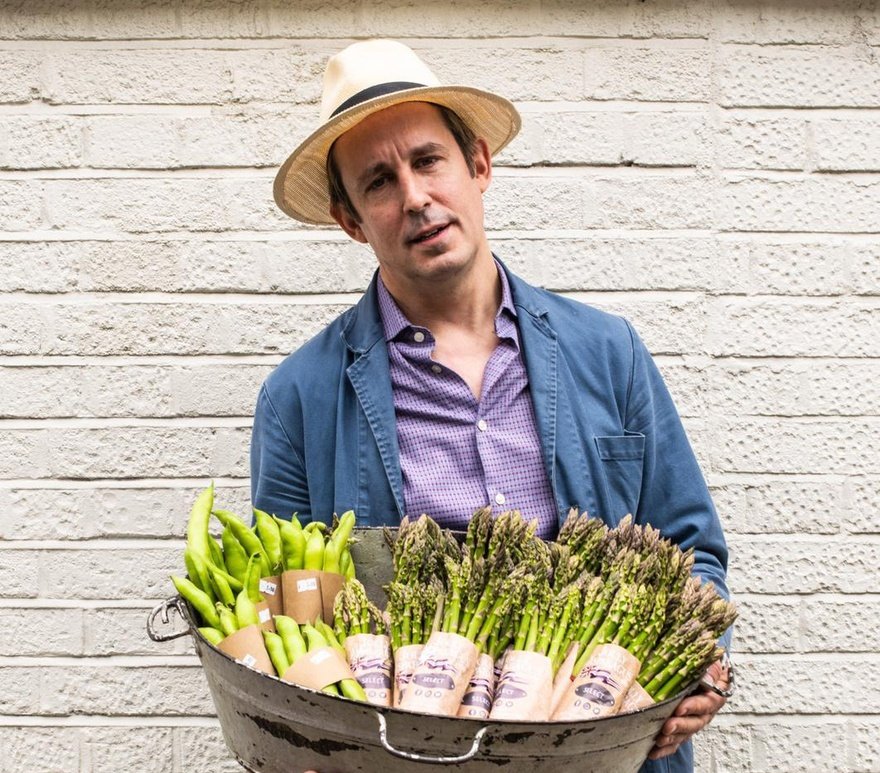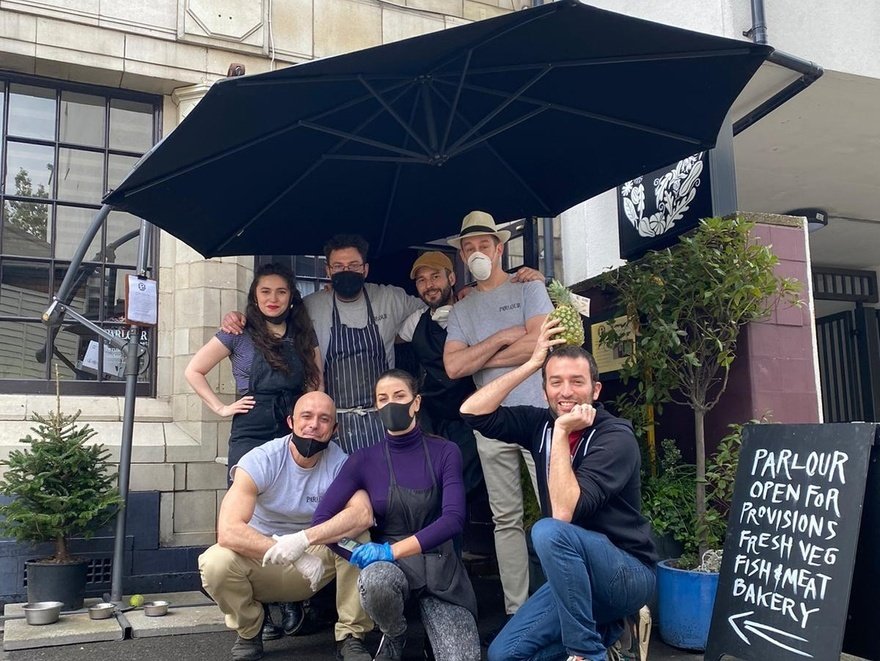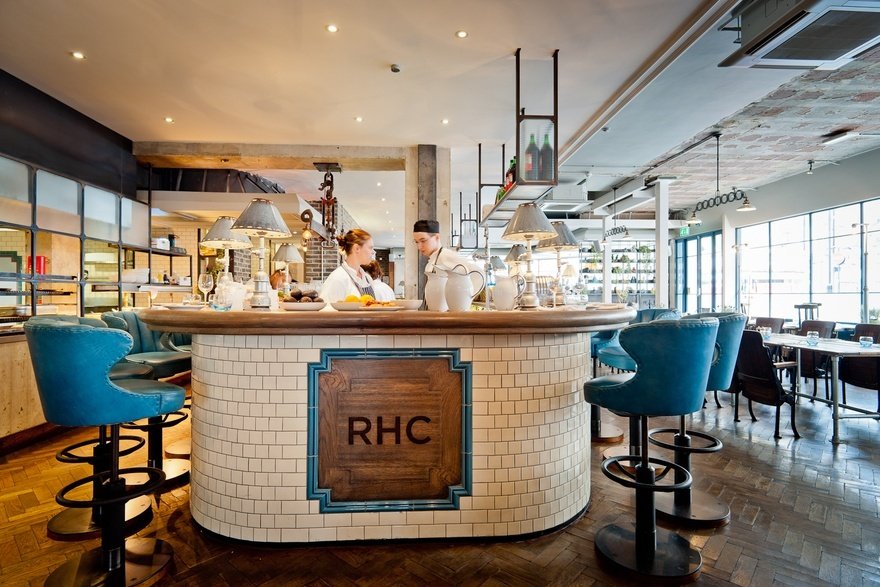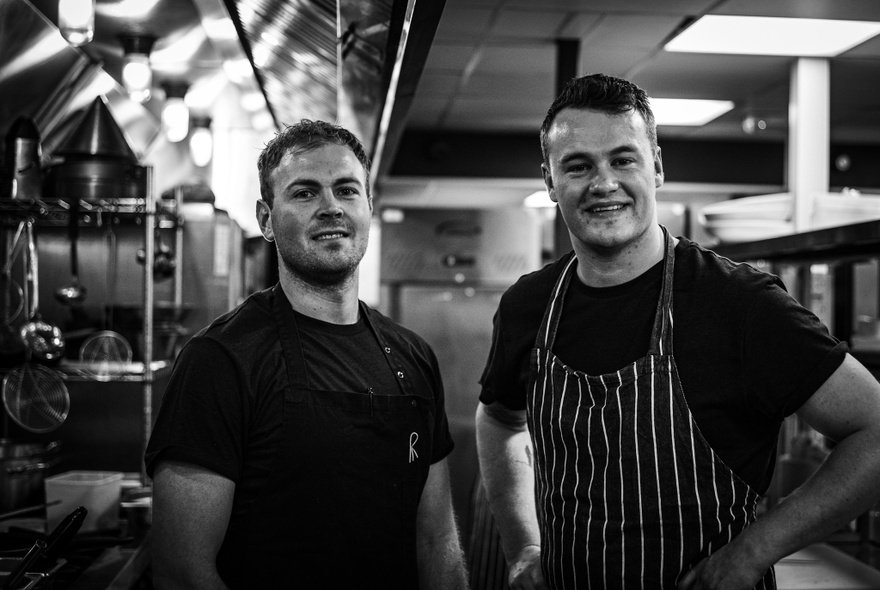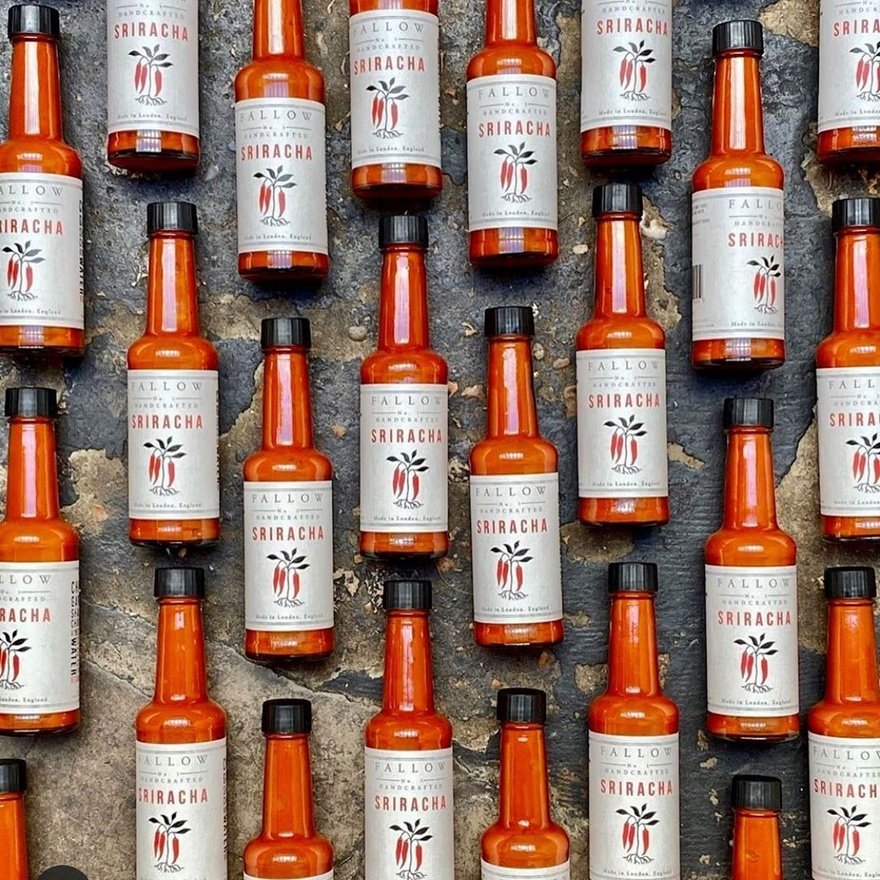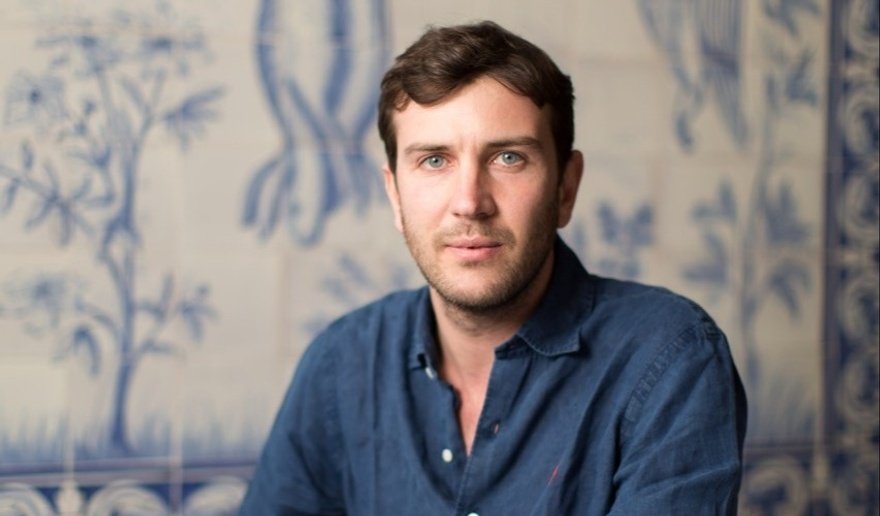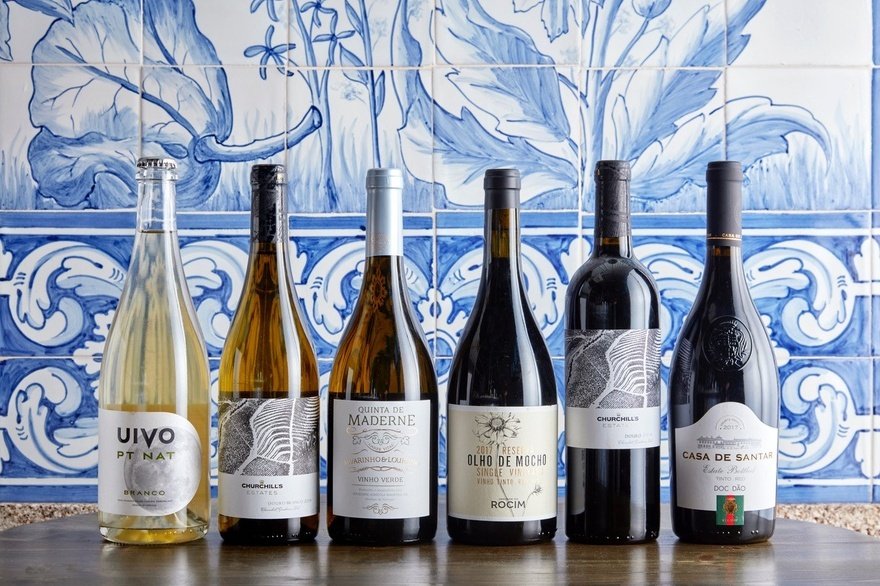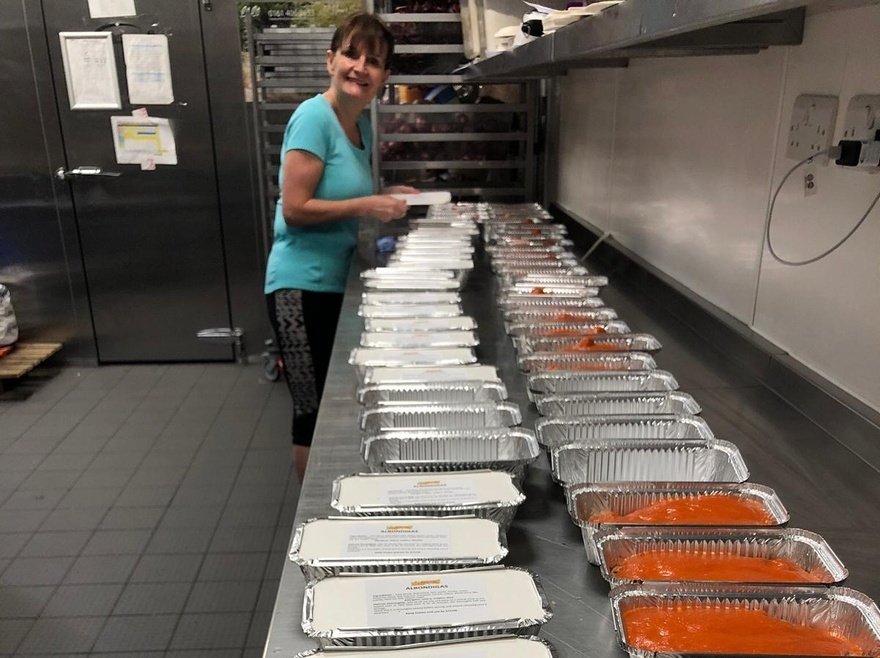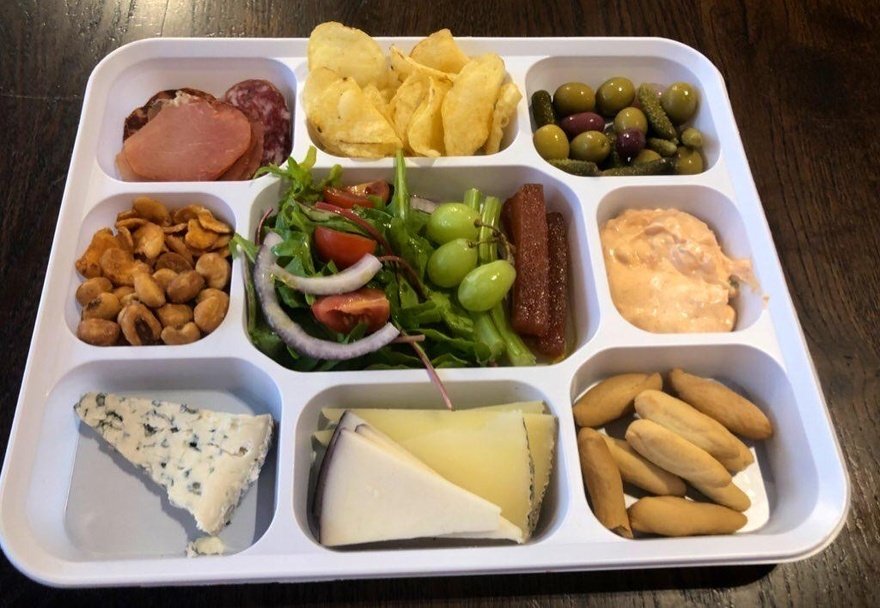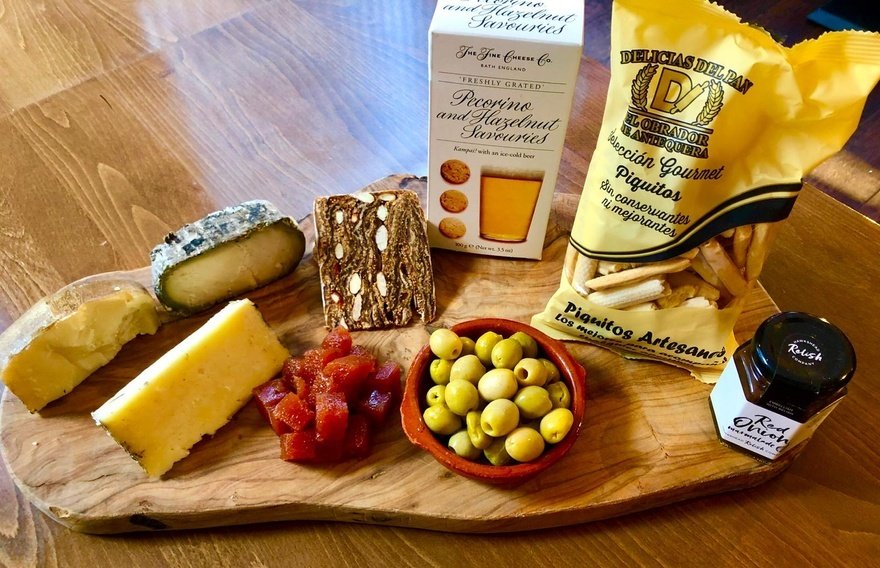When lockdown hit, revenue streams were reduced to a trickle and many businesses faced closure if they couldn't find new sources of cashflow. Then, the industry's incredible adaptability kicked in. Tom Vaughan explores the ways restaurants diversified to survive and how those ideas have now become part of their long-term strategies.
Takeaway
As lockdown hit, usually prolific kitchens were suddenly without eat-in diners. At the same time, the general public found itself shut up inside, dogged by food shortages and hankering after the sort of premium product for which restaurants are known. By far the most popular – and perhaps, obvious – source of new revenue streams among restaurants was takeaway and delivery.
At Michelin-starred Ynyshir in Machynlleth, Powys, chef-patron Gareth Ward took the opportunity to do building work during the first six weeks of lockdown, but when he realised just how long the Covid restrictions could last, he decided he wasn't going to sit around.
"We couldn't do our restaurant food as a takeaway – it just wouldn't work for the locals," he explains. "But I love cooking dirty kebabs and takeaways."
Dishes included produce-led takes on lamb kebab with flatbread; hoisin duck wrap with pickles; black bean beef with sushi rice; and – by far the most popular – chicken katsu curry, made with the same katsu ketchup that he serves in his restaurant. Boxes sold at £15 each and the chef used the same producers who usually supply the restaurant.
The popularity of the takeaways – Ward would sell 200-plus boxes a night – not only provided cashflow to help the restaurant with rooms through the tough lockdown months, but opened up possibilities for the future.
"We've got loads of barns here that we're not using; if I use one of them to open a permanent takeaway site, we could cook katsu curry two nights a week. It wouldn't make us a fortune, but it's another revenue stream and we're going to need that."
DIY cooking kits
"I think one of the best things to come out of lockdown has been the restaurant cooking kit," says Tom Barton, co-founder of Honest Burgers. For many restaurants, it has been not only an invaluable source of income, but a means to get staff back to work and keep connecting with a customer base.
"It was really important for us that we didn't go into hibernation as a brand," says Barton, whose Honest at Home kits cost £30 for four signature burgers. "We saw it as an opportunity to keep the brand active and keep our staff sane."
In Yorkshire, chef Tommy Banks – owner of the Michelin-starred Black Swan at Olstead and Roots in York – has struggled to keep up with demand for his food boxes. Banks was early to market with his, launching them in the first few weeks of lockdown to help keep staff employed and pay suppliers. They comprise the Made in Oldstead Food Box – two different three-course menus for two (priced at £70) – and a Made in Oldstead Signature Box, a six-dish tasting for two (priced at £120).
At first, the boxes were made in the Black Swan kitchens and delivered locally by staff. But within a few weeks, demand was so high that Banks had to expand the business, renting space from culinary stock retailers True Foods and vans to deliver the boxes. Local demand soon turned into national demand, and Banks was speaking to couriers and working with a local packaging firm to make sure their meals survived the rigours of courier travel.
At the time of writing, Banks is selling 500 Food Boxes and 200 Signature Boxes a week, employing 25 staff to work on them – meaning he can keep his workforce fully employed despite reopening his restaurants with reduced covers. What's more, it is a side of the business he intends to keep going. "It's difficult to say how long the demand will stay so high for, because the food box business didn't exist in March – we invented it overnight. But the best inventions come out of necessity."
The best inventions come out of necessity
Groceries
Takeaway might have been the most obvious solution to bringing in lockdown cashflow, but for some, the lack of drinks spend made it barely profitable.
One such restaurateur was Jesse Dunford Wood, owner of Parlour in London's Kensal Rise. After one weekend trialling takeaway Sunday lunch, he switched to selling groceries. He stocked up on vegetables, toilet roll, made his own bread and converted the pub to a shop. "That didn't go well at first either and I nearly stopped about five times in the first week. But, within a fortnight, we were turning over more than we would have as a pub."
He brought the fridges up from the cellar and from behind the bar, started selling meat, fish and craft beers, as well as cartons filled with the pub's draught beer. And when his own cellar ran dry, he bought beer from neighbouring pubs who had closed down.
As well as providing a revenue stream for the pub – and allowing him to keep five staff on – the bond it has helped forge with the local community has been invaluable. "It's kept the conversation going about the business and really established us with the local community – some people even discovered us because of the shop and have been coming back as diners. When everyone was locked down we were a little beacon of hope and community."
It's kept the conversation going about the business and really established us with the local community
At Fitzrovia's Riding House Café, in London, it was a similar story. DIY cooking kits and takeaway dishes weren't proving popular, but co-founder and director Adam White spotted another opportunity.
"In lockdown, people wanted premium products but often they didn't have access to them," he explains. "So we decided to open a shop selling the best peanut butter, the best vinegar, the best chocolate we could find. Then we created an entire grocery store brand in two weeks – branding, graphics, packaging, products. It was one hell of a turnaround."
The store was a hit and was supplemented by food boxes featuring everything you'd need for a luxury weekend – from bloody Marys to negronis, steaks and luxury snacks – which sold at £120 and proved popular birthday presents during lockdown. Now, White is looking for premises to open the store permanently. "Our thought process was ‘let's not do anything we can't keep going after lockdown, because the forecast is horrendous'. The store is a great product and it makes Riding House a broader offering."
Retail
While some restaurants pivoted to selling on the produce they would usually serve, others took a different approach to retail, taking their own products online.
"Retail requires a lot of thought," says James Robson, chairman of Fallow restaurant in London's Mayfair, which opened a week before lockdown and suddenly needed to find new revenue streams. "You've got to decide on labels, packaging, bottles, bottle-stoppers, route to market – all of which takes a lot of research if you haven't done it before. And if you have to do that for three different products – it is a lot of work."
Robson and his business partners Jack Croft and Will Murray – both chefs at Fallow – quickly launched three new retail products to help cashflow during lockdown: a homemade sriracha sauce, a rub seasoning and a granola. The sriracha in particular is proving a huge hit and they continue to sell it, despite the restaurant having reopened to guests in July. Along with a new successful venture into takeout meals, it forms part of the restaurant's plan to cope with a potential second wave. "They are both new revenue streams that we weren't considering initially. And if a second wave comes, we're prepared to shut down immediately and pivot quickly back to takeaway and retail."
If a second wave comes, we're prepared to shut down immediately and pivot quickly back to takeaway and retail
If you are up for it, undertaking retail can be an exciting challenge, says Max Graham, founder and director of Bar Douro in London. "When you've been in restaurants for a long, long time, it is fun to dip your toe into another industry and get to grips with it."
He took lockdown as the chance to set up a side of the business he had long discussed but never established – wine retail. "We import lots of great wines from small producers in Portugal and we'd long thought about making these wines available in a retail capacity."
With lots of stock in a bonded warehouse that was happy to keep delivering during lockdown, it wasn't hard for the restaurant to pivot, setting up a Shopify website very quickly and spreading the word online, with the next step the launch of a Bar Douro Wine Club, featuring specially curated boxes.
"We had a lot of goodwill in lockdown, which helped. That has dropped off a bit, but we've realised that e-commerce is a good space for us," says Graham. "Sales aren't huge but it helps cover the drop in revenue from coronavirus."
A successful pivot could be the difference between staying afloat and going under. When lockdown hit, Peter and Elaine Kinsella, owners of three-strong Lunya tapas group in the north-west, were faced with £150,000 of supplier debt and no business support from the government. "If we couldn't have cleared that debt, we would have never been able to reopen," says Peter.
The restaurants, which at the time had two sites in Liverpool and one in Manchester, had always run a small deli service in store and online – which accounted for a "modest income" of around £300 a week. But in the reality of lockdown, the couple decided it was their best bet to bring in new revenue streams.
Lunya pivoted from tapas meals to cooking frozen comfort dishes, such as shepherd's pie, which were packaged up with Spanish cheeses in hampers. The restaurant leant on the 40,000-strong email database that had been built up over the years to spread the word. Soon, 300-500 of these boxes were being sold a week.
Perhaps their shrewdest move was to approach importers and offer to buy all their Spanish beer off them at close to cost. "It let them clear their stock and meant we could sell it at the price point you'd pay for a box of Peroni or Fosters at the supermarket."
At the height of lockdown, the retail operation was turning over £20,000 a month and their Liverpool restaurant became a huge packing operation. "It still didn't account for much more than 25% of our usual turnover, but it meant we could pay our suppliers and keep going," says Peter.
The couple still had to made the painful decision to close their Manchester branch, "or else it would have brought the whole company down" says Peter. They have exited lockdown with £400,000 of new debt, but they are staying positive. "In the context of how things could have been, it's not devastating. It is bad, but it is manageable."
Other retail ventures include foraged cocktails from the Black Swan at Oldstead in York; exclusive and rare wines from London's Sager + Wilde; pre-mixed cocktails from Tayēr + Elementary in east London; and homemade sauces from Gareth Ward's Ynyshir in Powys.
Cooking lessons
As anyone whose social media feed was dominated by sourdough bakes will testify, many Brits saw lockdown as an opportunity to brush up on their kitchen skills. And it was a phenomenon not lost on some chefs.
At Fallow, the team decided to offer bespoke, one-on-one online cooking lessons with four of its chefs. Ranging in price from £89 per person, chairman James Robson estimates they sold about a dozen lessons – some as far away as Italy, thanks to their chefs' bilingual skillsets.
But the lessons weren't simply a money-making scheme. "For our two chef-patrons, it was about staying busy. They couldn't just go to the park and worry. A lot of it was about maintaining morale, keeping active and keeping the machine going. Although we only sold a dozen or so, it was another revenue stream and a great way to keep traction with our customers."
Continue reading
You need to be a premium member to view this. Subscribe from just 99p per week.
Already subscribed? Log In

